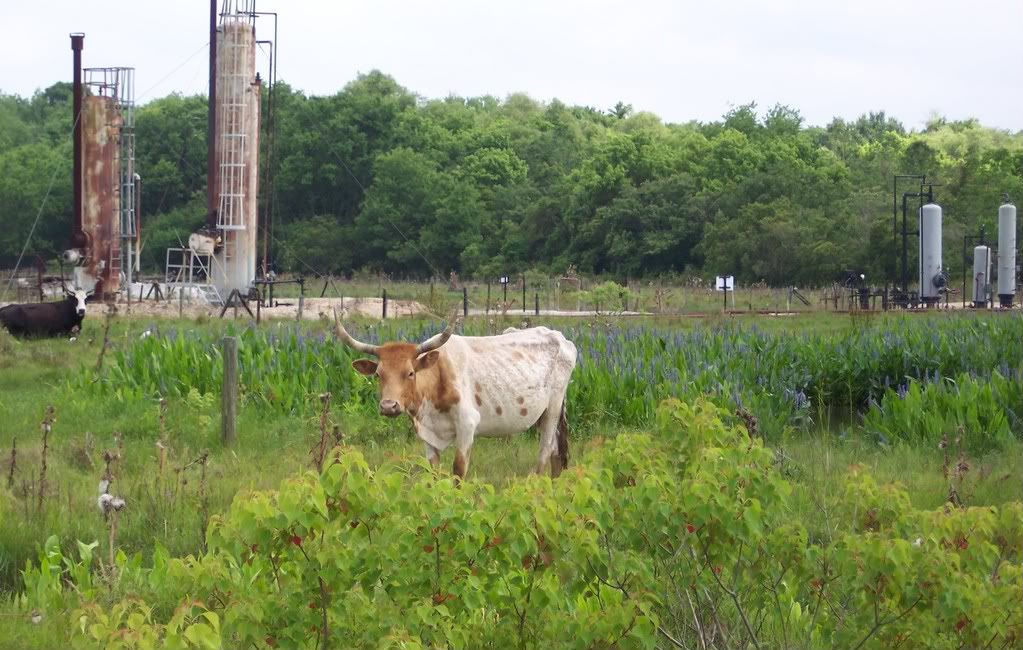Oil leaves bayou communities in distressBuy photo
Sibling crabbers Carla Ghere (from left), Carolyn Tillman, Johnathan Tillman and Steven Tillman, 14, pose Saturday on Carla's boat, the “Family Tradition,” with Carolyn's sons Kaleb, 3, and Landon, 1, in Chauvin.
By
Nikki Buskey Houma Courier
Sunday, June 13, 2010 at 6:01 a.m.
HOUMA: Arthur Eschete, owner of Sea-Go Seafood in Houma, is flying his flag upside down these days. On the open seas, he says, it's a traditional way to signal to passing vessels that you're in distress.
Like many others affected by the spill, Eschete can talk at length about his fears and stresses. There are worries grounded in everyday life, like how water closures linked to the Gulf oil spill affect his seafood business, finances and family.
But other things weigh on his mind too. He used to work in the oil-and-gas industry, and he fears what the ban will do to the local economy, and what a crippled economy will do to life on the bayou, where his family has lived for 250 years.
No one knows where we're at right now, and that's the scary thing, Eschete said. I'm 65 years old, and this is the first time in our lifetime that me and my wife have no idea what's going to be down the road in 2 to 3 years.
I try to look at what could happen to turn it around, but all you have to do is go on the Internet and look at those dead birds and dead dolphins, how can we just bounce back to where it doesn't devastate us for a decade? ... The future is very grim.
Just like oiled waters and marshes, the anger and fears caused by the spill have the potential to poison the mental health of the people affected. Family distress and drug and alcohol abuse could be some of the human symptoms of the spill.
The state Department of Health and Hospitals and Catholic Charities of Houma-Thibodaux have dispatched counselors to the Dulac and Larose community centers. And they have gone door to door in bayou communities to try and help locals cope with job loss, fear and depression.
We've had community meetings where grown men have cried, said Sharon Gauthe, director of BISCO, a local, church-based nonprofit.
Bayou communities are used to dealing with disasters after many years of flooding and hurricanes, said Dr. Anthony Speier, assistant deputy secretary of the state Office of Mental Health. But they may be struggling with more anger and hopelessness than they can handle amid the Gulf oil spill, with some scientists projecting that the waters and marshes that support local fishermen could be affected for years.
The difference between a hurricane and this oil spill is that after a hurricane, the damage is assessed and you can pick yourself back up and start rebuilding, said Kim Chauvin, co-owner of the Mariah Jade Shrimp Co. in Chauvin. You can get yourself help, get loans and neighbors help out neighbors.
Here, there's such uncertainty there is no planning for tomorrow.
........
But during a technological disaster, what this oil spill is considered, survivors know your fellow man did this to you, Speier said, and they're overtaken with anger and loss.
Fishermen know BP spilled the oil that has stopped their work, Chauvin said, and now they have to go to BP to get employment cleaning up the mess or file claims to try and pay their bills in a frustrating process.
Commercial fishermen are living stressed right now, Chauvin said. The shock is still settling in, but we're only looking at the tip of the iceberg. You're going to have a world of hurting people down here.
CLICK TO READ FULL STORY at Houmatoday.com
UNANSWERED QUESTIONS
Speier said the crisis in the Gulf shares similarities with 1989's Exxon Valdez spill in Alaska's Prince William Sound. Both hit rural fishing communities hard.
It creates another level of anxiety for people who live off the land, Speier said.
DON'T BE AFRAID TO TALK
There are no easy answers, and with the ambiguity comes anxiety. And anxiety, unabated, can turn into depression and hopelessness.
CLICK TO READ FULL STORY at Houmatoday.com





